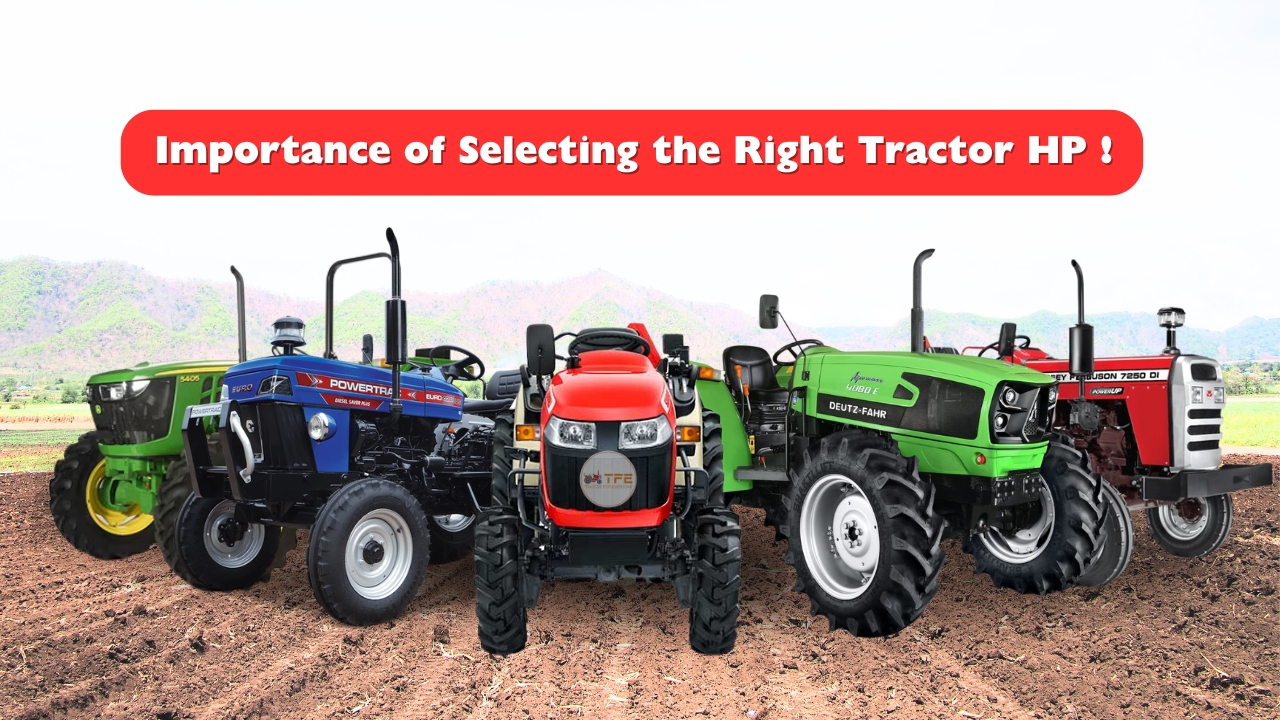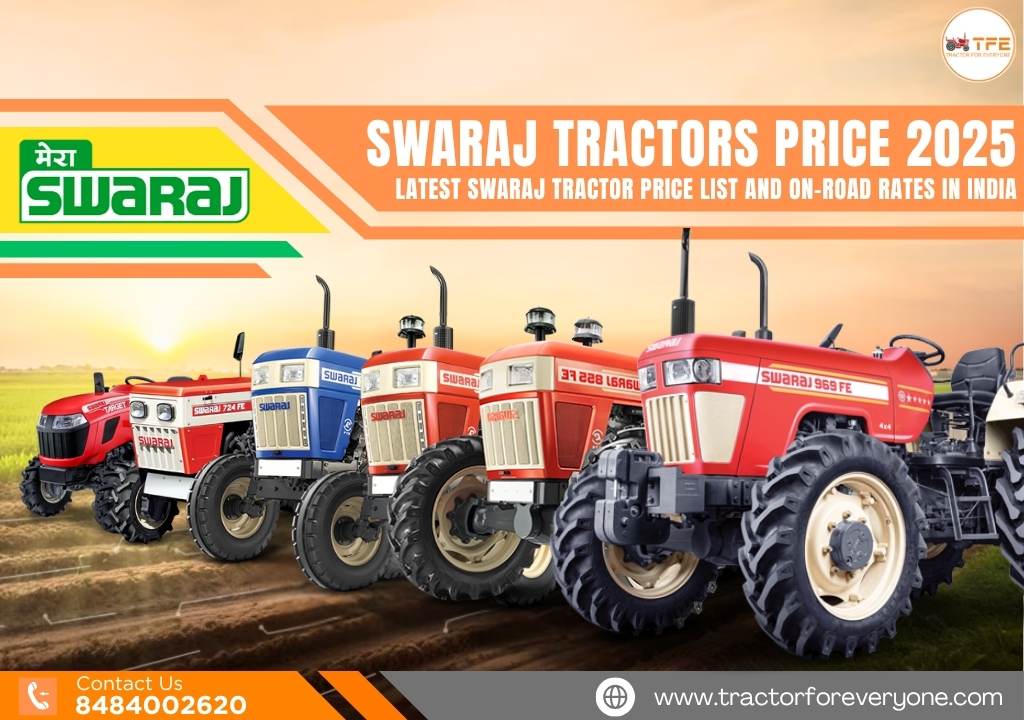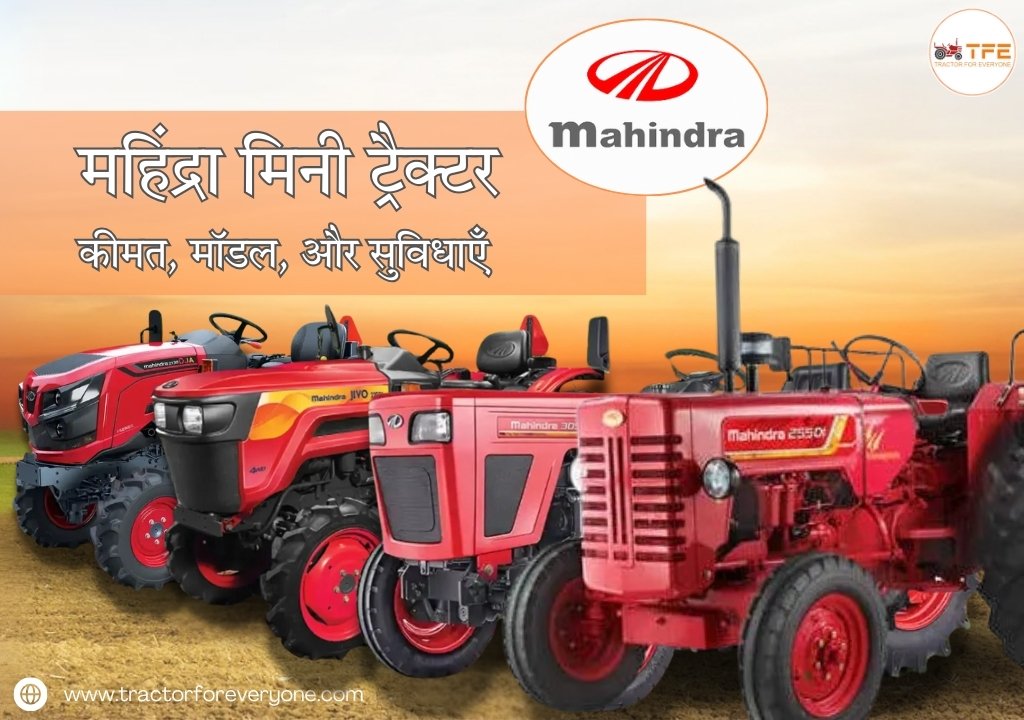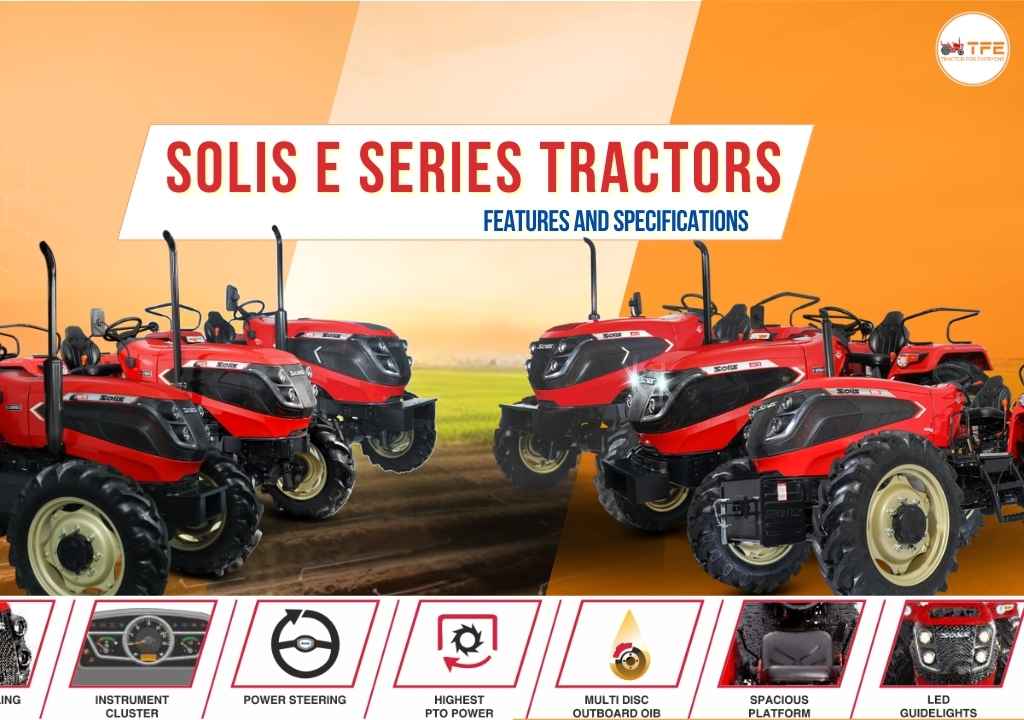Best Used Car, Services, Auto Parts, Rent Car Available for Buy and Sell Near By Go Ahead
- Swaraj Price 2025: Latest Swaraj Tractor Price List and On-Road Rates in India
- Best Kubota Mini Tractors for Orchard and Vineyard Farming
- महिंद्रा मिनी ट्रैक्टर - कीमत, मॉडल, और सुविधाएँ
- Swaraj 855 FE Tractor Review 2025 Features, Price and Performance Explained
- Best Tractors in India 2025: Top 10 Picks for Every Farm Size
- महाराष्ट्र फार्मर आयडी: ऑनलाइन नोंदणी प्रक्रिया, कागदपत्रे आणि फायदे
- Sonalika Tractor Price 2025 Complete List of Models, Series and Latest Offers
- Swaraj Tractor Price List 2025: Best Tractors for Small, Medium & Large Farms
- Swaraj 744 FE Price, Features & On-Road Cost Explained for 2025
- Mahindra Tractors Price 2025: Complete List, Series-Wise Comparison and Best Models

The Importance of Selecting the Right Tractor Horsepower
Table of Contents:
1.Introduction
2.Understanding Tractor Horsepower
3.Importance of Tractor Horsepower
4.Things to Consider Before Buying a Tractor for Your Farm
4.1 Acreage of Your Property
4.2 Types of Chores and Tasks
4.3 Future Needs and Requirements
4.4Cost of Ownership
4.5Dealer Support and Expertise
5. Choosing the Right Tractor HP to Match Your Farming Needs
5.1 15 to 20 HP Tractors
5.2 21 to 35 HP Tractors
5.3 36 to 50 HP Tractors
5.4 51 to 90 HP Tractors
5.5 91 to 150 HP Tractors
6. Conclusion
1.Introduction
Farming, an age-old profession, has evolved tremendously over the years, with technology playing a pivotal role in enhancing productivity and efficiency. Among the various technological advancements, tractors stand out as indispensable tools that have revolutionized agriculture. These robust machines come in various shapes, sizes, and most importantly, horsepower (HP). However, selecting the right tractor horsepower to match specific farming needs can be a daunting task for many farmers.
2.Understanding Tractor Horsepower:
Before delving into the intricacies of choosing the appropriate tractor horsepower, it's essential to understand what tractor horsepower entails. In simple terms, tractor horsepower is a measure of the engine's power output, indicating the amount of work the engine can perform at a given time. Traditionally measured in horsepower (hp) or kilowatts (kW), tractor horsepower is a critical factor in determining a tractor's performance capabilities.
3.Importance of Tractor Horsepower:
Tractor horsepower plays a pivotal role in determining a tractor's speed, towing capacity, and ability to handle various farming tasks. Higher horsepower tractors excel at heavy-duty operations such as ploughing, tilling, and hauling heavy loads. Conversely, lower horsepower tractors offer efficiency for lighter tasks like mowing, gardening, and light hauling, often providing better fuel economy. Therefore, understanding the importance of tractor horsepower is crucial for making informed decisions when purchasing a tractor.
4.Things to Consider Before Buying a Tractor for Your Farm:
Several factors should be carefully evaluated before investing in a tractor to ensure it meets the specific needs of your farm:
4.1. Acreage of Your Property: The size of your land is a significant determinant in selecting the appropriate tractor horsepower. Smaller properties may require lower horsepower tractors for lighter tasks, while larger properties necessitate higher horsepower tractors to tackle heavier workloads efficiently.
4.2. Types of Chores and Tasks: Consider the specific farming tasks and chores you intend to perform with the tractor. Light-duty tasks such as mowing, gardening, and light hauling may require lower horsepower tractors, while heavy-duty field operations like plowing, tilling, and hauling heavy loads necessitate higher horsepower tractors.
4.3. Future Needs and Requirements: Anticipate the future growth and expansion of your farming operations. Investing in a tractor that can accommodate future needs ensures scalability and prevents the need for frequent upgrades. Choose a tractor that can grow with your business and adapt to evolving requirements.
4.4. Cost of Ownership: Beyond the initial purchase cost, consider the long-term expenses associated with owning a tractor. Factor in expenses such as fuel consumption, maintenance charges, and resale value to accurately estimate the total cost of ownership over the tractor's lifespan.
4.5. Dealer Support and Expertise: Seek guidance from knowledgeable dealers who can provide expert advice and assistance in selecting the right tractor for your specific requirements. Dealer support and expertise are invaluable resources that can help you navigate through the myriad of options and make informed decisions.
5.Choosing the Right Tractor HP to Match Your Farming Needs:
Tractors are available in a wide range of horsepower options, each tailored to meet specific farming needs:
5.1. 15 to 20 HP Tractors: These lightweight and compact tractors are ideal for small gardens and lawns. They excel at light-duty tasks such as mowing, gardening, and light hauling on properties of three acres or less.
5.2. 21 to 35 HP Tractors: Subcompact tractors with horsepower ranging from 21 to 35 HP are versatile machines suitable for small-scale cultivation, front-end loader operations, and light hauling on properties of around 10 acres.
5.3. 36 to 50 HP Tractors: Compact utility tractors in this horsepower range offer increased power and efficiency for farming tasks such as landscaping, tilling, and hauling heavy implements on properties ranging from 20 to 40 acres.
5.4. 51 to 90 HP Tractors: Utility tractors with higher horsepower capacities ranging from 51 to 90 HP are equipped to handle heavy workloads efficiently. They are suitable for properties ranging from 40 to 70 acres and excel at heavy-duty farming operations.
5.5. 91 to 150 HP Tractors: Heavy-duty farm tractors with horsepower ranging from 91 to 150 HP are designed for large-scale commercial farming operations. These powerful machines are capable of handling complex and demanding tasks on properties of around 100 acres or more.
6.Conclusion:
Selecting the right tractor horsepower is paramount for optimizing farming operations and ensuring productivity and profitability. By carefully evaluating factors such as property size, types of tasks, future needs, cost of ownership, and dealer support, farmers can make informed decisions and choose the appropriate tractor horsepower to match their specific farming needs. Investing in the right tractor horsepower not only enhances efficiency but also lays the foundation for sustainable agricultural practices and long-term success.
Write a Comment
Popular Blogs View All
-

Swaraj Price 2025: Latest Swaraj Tractor Price List and On-Road Rates in India
07/24/2025, POSTED BY ADMIN -

Best Kubota Mini Tractors for Orchard and Vineyard Farming
01/13/2026, POSTED BY ADMIN -

महिंद्रा मिनी ट्रैक्टर - कीमत, मॉडल, और सुविधाएँ
02/18/2025, POSTED BY ADMIN
Popular Video View All
-

महाराष्ट्रात Second Hand Tractors ची उत्तम संधी! तुमच्या बजेटमध्ये, विश्वासार्ह ट्रॅक्टर मिळवा!
12/16/2025, POSTED BY ADMIN -

TFE Reaper Machine Working | Full Multi-Crop Cutting Process!
12/16/2025, POSTED BY ADMIN -

5 Things You Need to Know Before Buying a Solis E Series Tractor
05/17/2025, POSTED BY ADMIN

